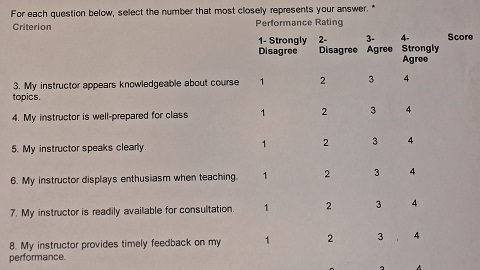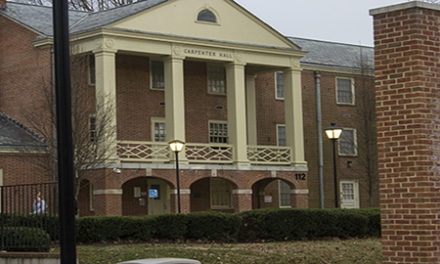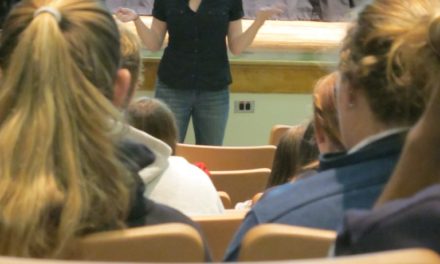By Kristen Griffith (Whetstone Staff Writer)
Senior Leah Lowery said Tk20 course evaluations are unnecessary.
“I think that they’re stupid and are not effective,†she said. “They’re very general.â€
Students are sent Tk20 course evaluations every semester to rate their professor’s performance in class.
After students fill out their major, academic year and what grade they expect in the course, they then rate statements like, “My instructor appears knowledgeable about course topics,†on a scale of one through four – one being “strongly disagree†and four being “strongly agree.â€
After evaluations are completed, department heads and professors can view the data and graph results.
“Course evaluations are an indirect measurement tool of assessment to gauge the effectiveness of meeting the student learning outcomes as outlined on the course syllabus,†said Abdul Hameed, data and strategic research specialists. “Course evaluations are required [every semester] for adjunct professors and once every three years for full-time professors, as outlined by the Faculty Handbook.â€
Professors can also request to have their courses evaluated.
Lowery said it would be better if they specified course evaluations according to each major, as the nursing department does.
“Nursing [course evaluations] asks for clinical evaluations,†she said. “We have a lot of new professors and they want to make sure they’re effective.â€
Hameed said course evaluations are anonymous, and professors will not be able to tell which student said what.
“We can’t track IP addresses, we can’t ask for your name,†he said. “Professors aren’t even allowed to access them until after final grades.â€
Linda De Roche, English professor and head of the department, said professors are capable of figuring out which students the comments belong to.
“As a professor, you can’t take comments personally,†she said. “I do think that’s the way most of us respond to student evaluations.â€
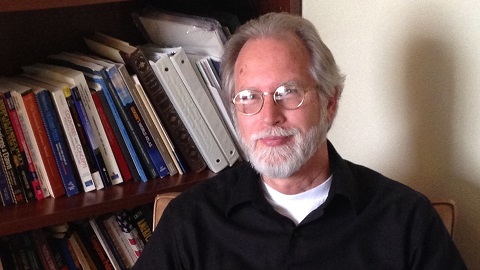
Dr. Anthony Armstrong
Tony Armstrong, professor and department head of political science, said some professors want to get rid of course evaluations because some students are immature. But Armstrong said they’re useful overall.
“I think they’re very important for a means to hold professors somewhat accountable,†he said.
As chair of the department, Armstrong is responsible for viewing the political science and history professor’s course evaluations.
“I have noted some apparent deficiencies in some faculty evaluations that they should work on,†he said.
Armstrong said when student comments consistently say their professors show up late, do not follow the syllabus or don’t show subject knowledge, it raises red flags.
A poor course evaluation can prevent promotions or tenure, De Roche said. She said if an adjunct professor receives a poor evaluation, he or she can lose the job.
De Roche said course evaluations should not be used to measure if she’s a good or bad teacher.
“Let’s say I’m teaching a new course and I want to evaluate it, and students didn’t necessarily like the class,†she said. “If the evaluation scores aren’t necessarily high, then they could use that against me.â€
De Roche said tests are a good way to measure a professor’s teaching effectiveness.
Armstrong said not enough students complete the course evaluations.
“One thing I would say is that student evaluations do matter and that students take them seriously,†he said. “It is there only way to say how teachers are performing.â€
Hameed said 65 percent of the 4,200 course evaluations were completed last semester.
“Seventy-five percent is usually where we want to get at,†he said.
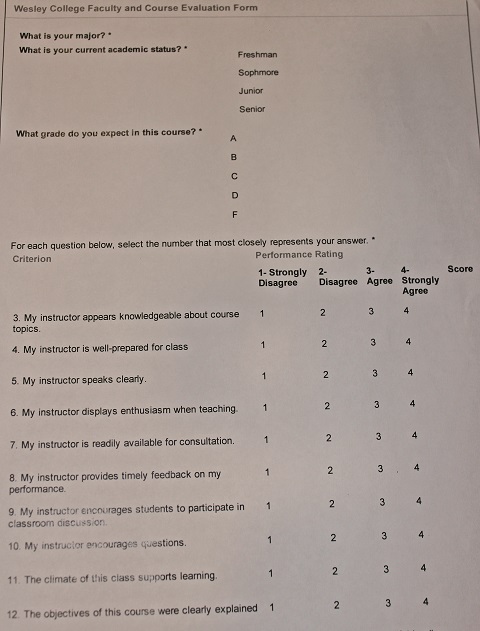
Course Evaluation form

